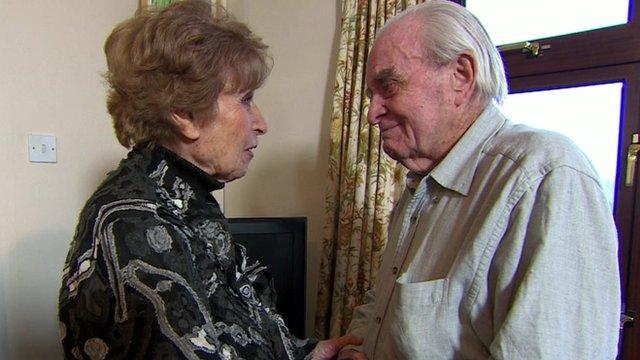Buchenwald camp survivors mark 70 years since liberation
- Published
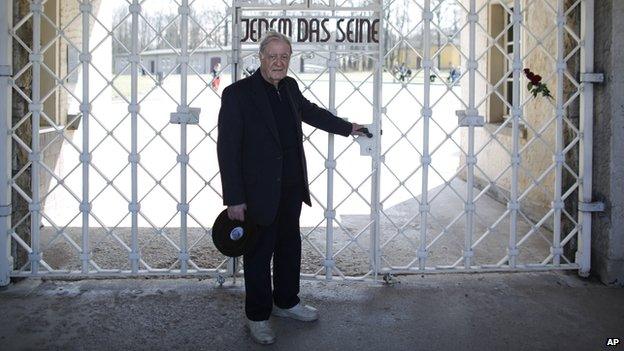
Survivor Henry Oster lost both of his parents in Nazi death camps
Survivors have returned to the Buchenwald concentration camp 70 years after it was liberated by US soldiers.
American forces entered the camp on 11 April 1945, bringing an end to the ordeal of 21,000 prisoners being held there by Nazi troops.
Former inmates and war veterans returned to the site, near the German city of Weimar to mark the anniversary.
It was the first major camp to be liberated by the Americans at the end of World War II.
Survivor Henry Oster said his memories of Buchenwald, external would last "forever".
"When someone asks how Buchenwald was, you immediately see the dead bodies again," he told AP.
More than 250,000 men, women and children were held at Buchenwald from its opening in 1937 until its closure eight years later. About 56,000 people, including Jews, Roma and Soviet prisoners, died within its walls.
Crowds laid flowers at a memorial for the victims on Saturday and held a minute's silence at 15:15 - the time US troops entered the site.
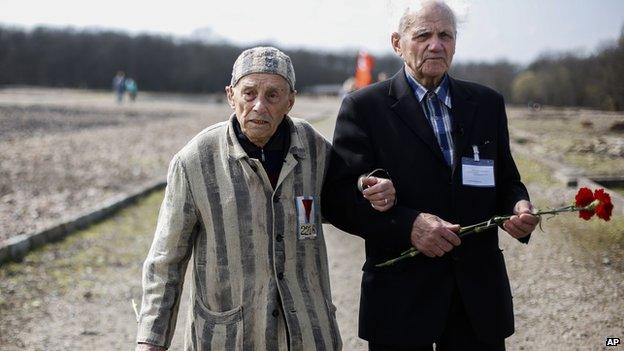
Buchenwald was the biggest concentration camp on German soil
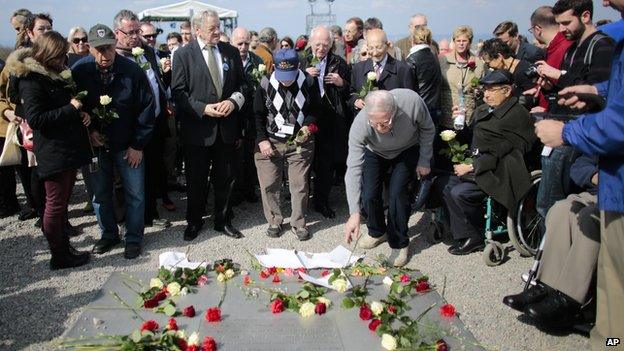
Families gathered at the former camp, which is now a visitors centre
Mr Oster, 86, recalled the day the soldiers arrived to free prisoners.
"We had no idea the Allies were in Europe. When we heard noises at about 15:30, we looked out of the window, which took a great effort," he said.
"One of my friends said with a weak voice, 'I think we are getting liberated'. We thought he had lost his sense of reality like so many people there."
Mr Oster, a German Jew from Cologne, was taken to an orphanage in France and emigrated to the United States in 1946.
Former army medic James Anderson, 91, also attended the commemoration ceremony.
"The devastation was so tremendous," he said. "The prisoners were so glad to see us, they would hug us and everything.''
- Published10 January 2015
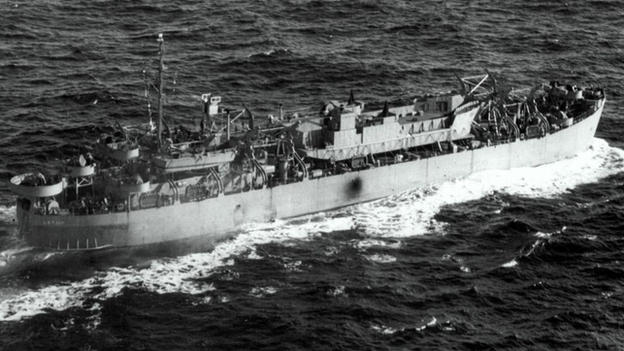
- Published20 April 2013
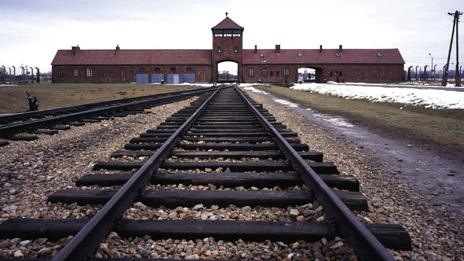
- Published27 January 2015
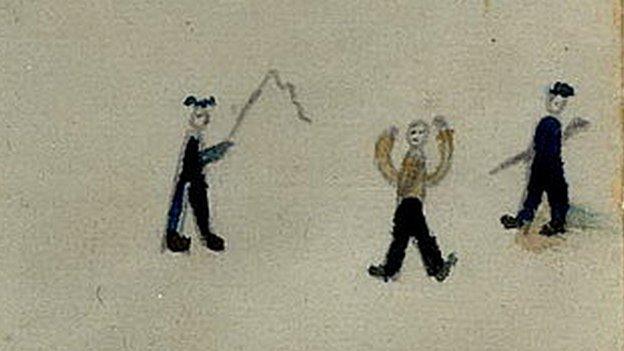
- Published10 April 2015
